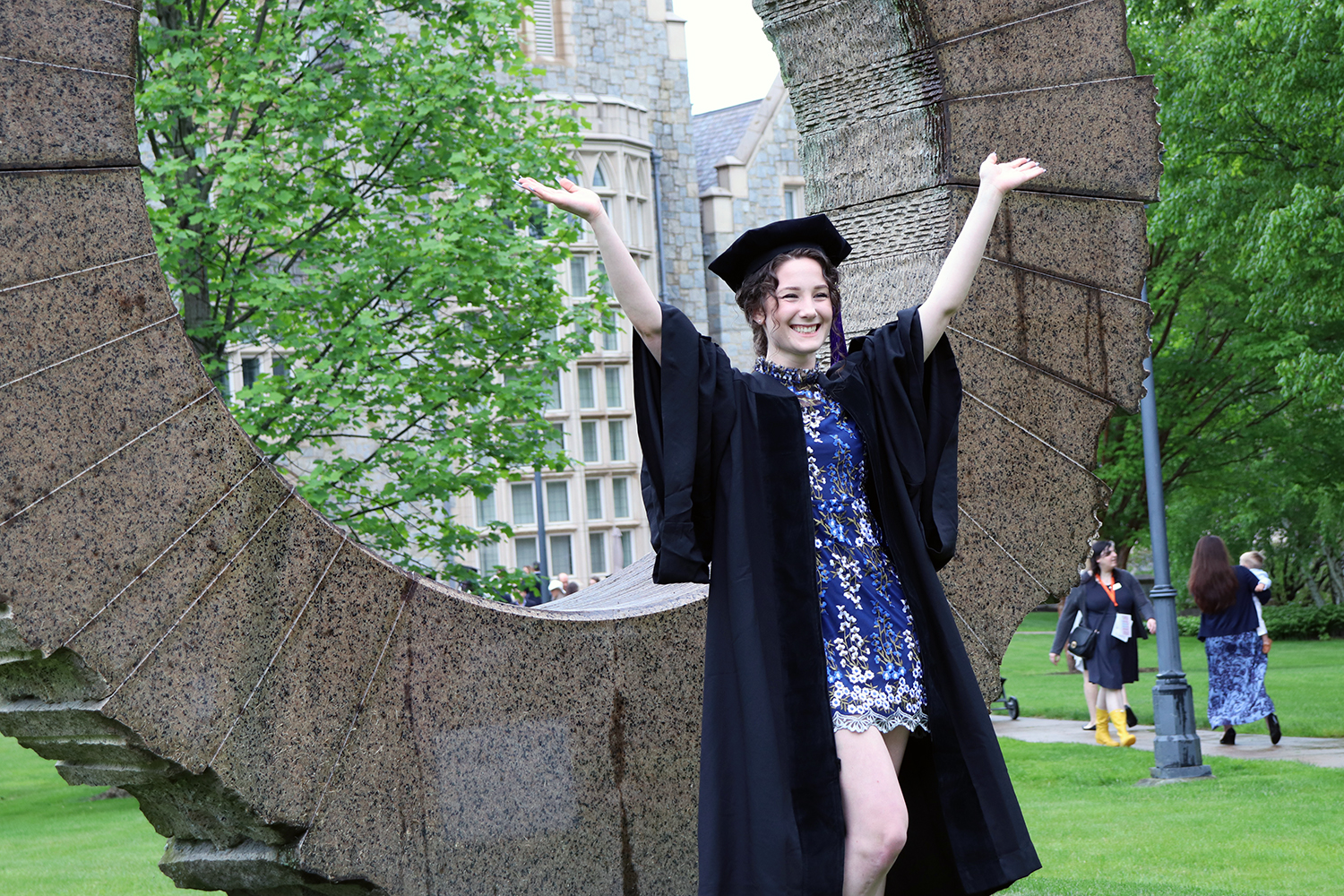The shifting weather inspired more than a few quips, but the mood beneath the tent for the 96th commencement of the UConn School of Law on Sunday was decidedly sunny. The graduates, many smiling and jubilantly waving, marched to their seats, as family and friends gathered for the ceremony looked on and cheered.
Dean Timothy Fisher congratulated graduates for all they had accomplished and overcome to get to this day: The shock and awe of the first semester, the late nights at the library, the cold calls in class.
“But look at what you have to show for it,” Fisher said. “You have the capacity to change the world.”
Fisher singled out Col. Morton Katz, a graduate of the class of 1951, for special recognition. Katz, who had turned 100 four days earlier, is an active alumnus of the school and still works as a special public defender in state Superior Court in Hartford.
The Class of 2019 included 221 candidates for Juris Doctor (JD) and Master of Law (LLM) degrees, including 20 graduates who earned LLM degrees in U.S. law through a new program in Seoul, Korea, taught by UConn Law faculty in partnership with Hallym University of Graduate Studies. In addition, Fernando P. de Mello Barreto, the consul general of Brazil in Hartford, earned a Doctor of the Science of Laws (SJD) degree.
Speaking to her fellow Master of Law graduates, Charleen Roloff, described the program as “one hell of a ride” that tested their mental strength. Emily Adams Gait, a graduate of the Juris Doctor evening program, held up a “Law Book” made for her by her two young daughters. Aaron Frankel, a graduate of the JD day program, marveled at the spirit of community he found at UConn Law and urged fellow graduates to take it with them.
On a more somber note, Fisher reminded graduates of the serious issues they face as they enter the legal profession.
“There are voices that consider the law an annoyance if it gets in the way of a powerful person’s agenda or a popular ideology,” he said.
What distinguishes the best and worst places on earth, he continued, is whether the law is present and whether the law is strong. When it’s not, society becomes corrupt, and in the end violent and miserable.
“Our profession exists to protect society from that consequence,” he said. “You are up to that challenge.”
Donald B. Verrilli Jr., former solicitor general of the United States and commencement keynote speaker, built on the theme.
“We are witnessing attacks that I have not seen in my lifetime on the integrity and independence of the Department of Justice and the integrity and independence on the judiciary,” said Verrilli, who served as U.S. solicitor general from 2011 to 2016 and whose landmark arguments include successfully defending the Affordable Care Act before the U.S. Supreme Court. “On the freedom of the press on the idea that all persons are equal before the law, on the idea that this country is for everyone, really on the rule of law itself.”
The work graduates will do as lawyers every day is the best possible response to the challenge we are facing now, he said, evoking the “majestic” words of the preamble to the Constitution. It is work that helps create a more perfect union, establish justice, promote domestic tranquility and provide for the general welfare and secure the blessings of liberty for ourselves and our posterity. It’s the most important work you can do, he said.
“Every one of us has it in our power to reaffirm our faith in those defining principals,” Verrilli said. “I hope that every one of us here today can find a way to go out and do that.”



